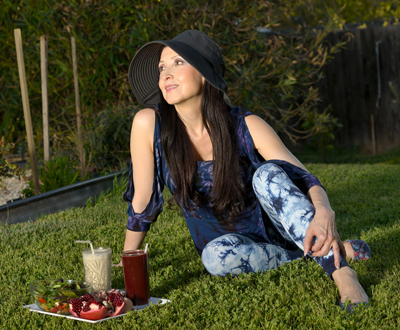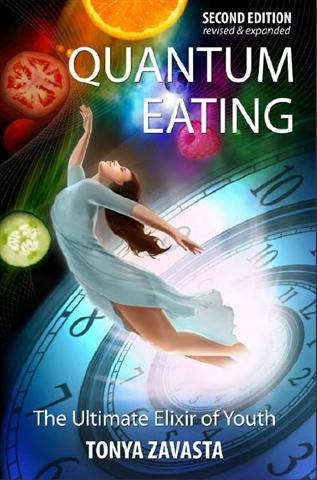How Many "Raw Food Calories" Should You Eat?

Recently I came across a BBC documentary series, The Truth About Food. The first episode, titled How to Be Healthy, follows nine fast-food junkies temporarily caged at a zoo, as they munch their way through 5 kilos (about 11 lbs) of raw fruit and vegetables every day.
A good documentary. A valid message that raw foods can greatly improve your health. But the notion of eating a truckload of food makes it unappealing for many. Is there a solution?
Why 5 kilos? Because that’s how much raw food you need to eat to get your necessary calorie load for the day, or so says the documentary. Never has calorie-counting come across so wrong as in this case.
Flawed from the very beginning, the idea of counting calories may have some appeal to the cooked food folks, since the addictive nature of cooked food denies people the ability to instinctively feel when we’ve consumed the nutrients the body needs. With the more natural live food diet, keeping track of calories simply isn’t needed.
Consider this example: Professional ballet dancers consume between 1000 and 1300 calories a day. Yet, when they are in their intense training mode preparing for performances, they spend around 2500-3000 a day. Do the math. The numbers simply don’t add up. In the article Calorie Restriction: What Nutritional Science is Missing I explain this issue further.
When it comes to the raw food diet, the same rules just don't apply. The calories present in live foods give you much more "bang for your buck" as discussed in How Many Calories are in Raw Foods?
Remember how, in your early raw days, you were grazing all day long on huge salads and heavier raw foods, but you were still losing weight? During the transition to raw, our bodies usually demand large quantities of food, functioning on autopilot for a while. The body “knows” it’s getting more nutrients now, learns to digest and absorb them properly, and lets us know we can start reducing our food intake. You’ll soon notice you can’t physically eat that whole bucket of salad at one sitting anymore.
I have been 100% raw for sixteen years. All I eat in a day, now, can fit on a 12" by 12" tray: two handfuls of nuts (soaked), Invigorating Morning Juice, a hemp banana shake, a salad, several fruits in season, one or two raw eggs. I consume all this within the eight hours of the day. I usually eat during the first part of the day. I wash, peel, juice, blend, cut, and peel again and so on. You know how it goes. I enjoy eating my delicious meals. But in a way I like my second part of the day - free of any food preparation - much more.
I don’t want to be preoccupied with food prep all day—don’t think I could do it for long (I might even fall off the raw wagon if I had to.) There are too many other things I like to do in life. Exercise, for one. Not only is intense physical exercise part of my recovery from injury, but I just plain like it.
In the BBC documentary I referenced, those nine people didn't remain on their all-vegetable diet after the experiment. But if they had done it, they would have noticed, to their surprise, that the amount of food they ate would slowly diminish over time. No more five kilos. And definitely not five kilos’ worth of calories.

